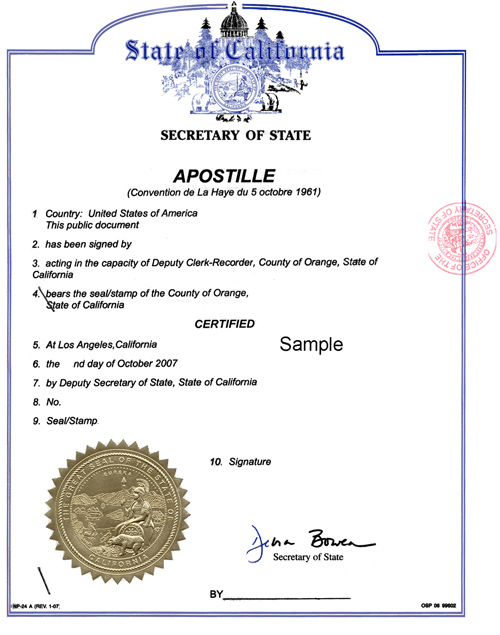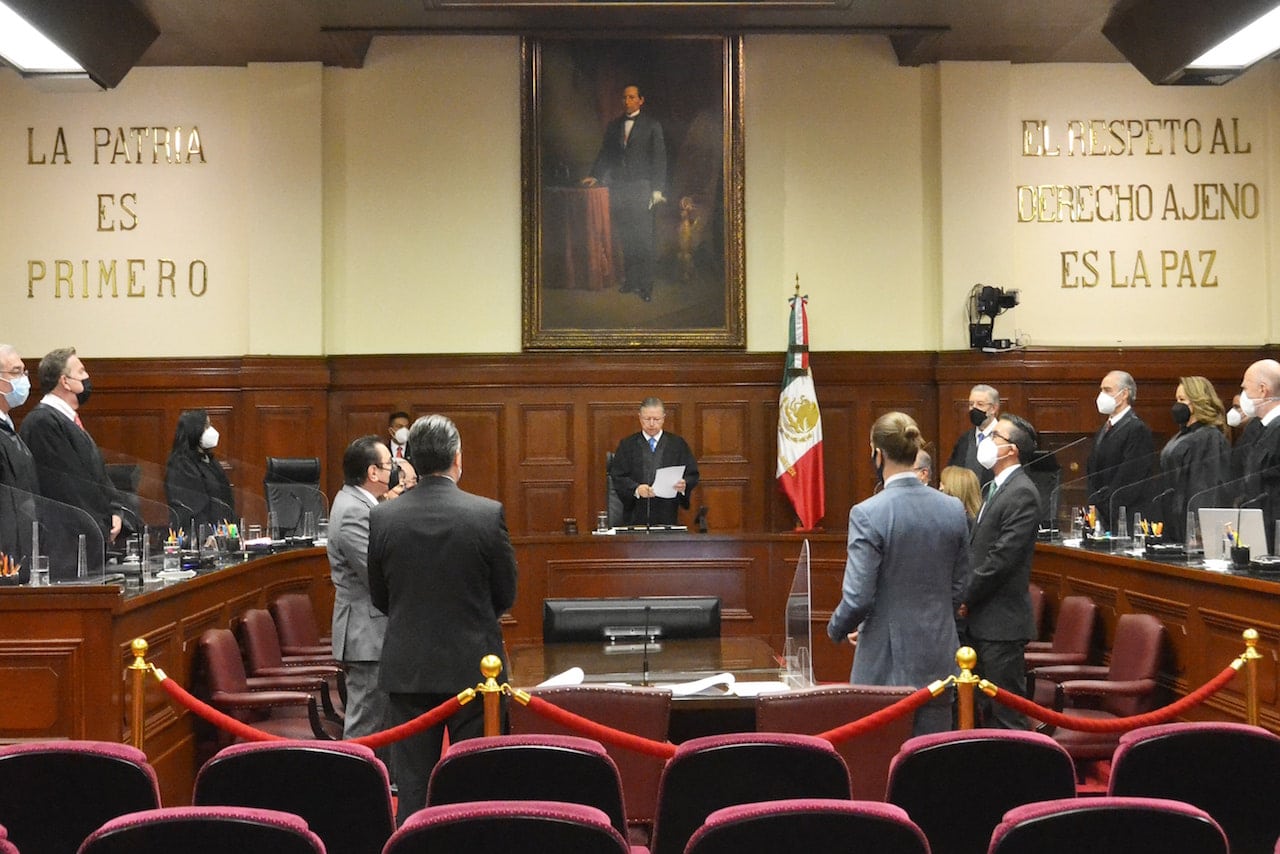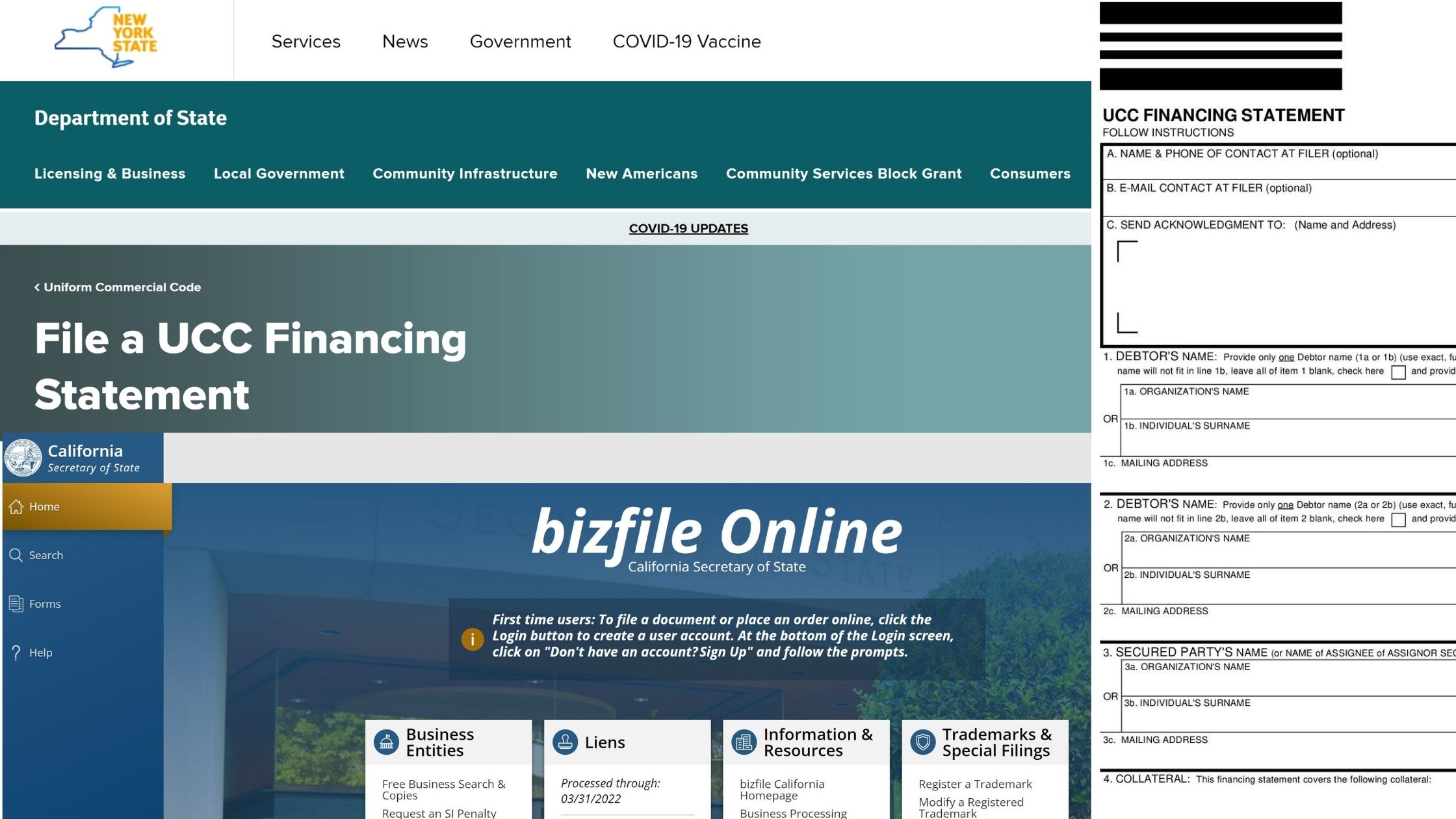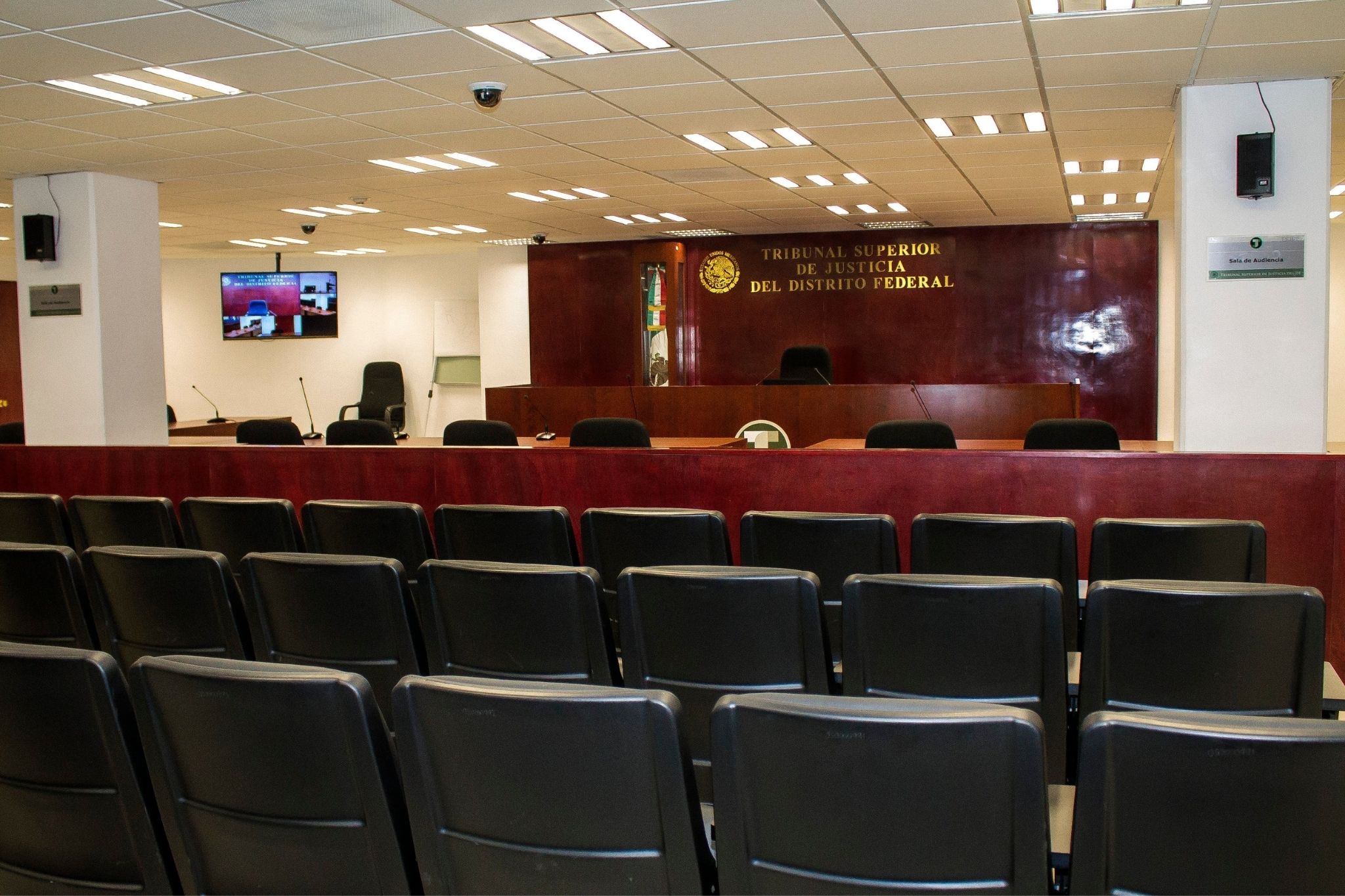
Summary: This article discusses the process to enforce foreign judgments in Mexico (homologation or exequatur), pointing out requirements under Mexican law, while making suggestions to avoid risks and problems during homologation proceedings. The focus is on judgments from judicial courts and does not address arbitral awards.
Introduction to judgment enforcement in Mexico
Mexico’s unique and extremely formal legal system is an unpleasant reality. For some naive and unprepared souls, it is a nightmare. This is most visible when someone tries to enforce a foreign judgment in the Mexican courts.
In the USA, a party planning to enforce a judgment across borders needs only a few things. They must complete a registration form, attach a copy of the judgment, and file in another district within the US. If the judgment is from a federal court, giving notice of filing to the debtor is not even necessary. This, thanks to the Uniform Enforcement of Foreign Judgments Act, which most US states have adopted.
In Mexico, the process for enforcing a foreign judgment (known as “homologation” or “exequatur”) is a different story. The process is quite a rigorous one, where both local and federal rules of procedure come into play.
This happens within a civil law tradition that relies heavily on strict adherence to rules (“legality”) and sacramental formalities. Most of the time, this carries over any sense of justice, or plain common sense, as legality is how justice is better served. Thus, it is wise to understand and anticipate requirements for homologation in Mexico even before commencing legal proceedings abroad.
Therefore, this article will explain the process of homologation for judgments of foreign courts. We will point out requirements and formalities provided under State and Federal laws in Mexico. We will make further suggestions that you need to consider upon starting legal proceedings abroad, or homologation itself.
Our focus are foreign judgments from judicial courts, and we will not address enforcement of foreign arbitral awards.
Mexican law on enforcement of foreign judgments
There are two main international treaties that govern the recognition and enforcement of foreign judgments in the American region, pertaining to civil and commercial matters:
- The Montevideo Inter-American Convention on Extraterritorial Validity of Foreign Judgments and Arbitral Awards; and
- The La Paz Inter-American Convention on Jurisdiction in the International Sphere for the Extraterritorial Validity of Foreign Judgments.
While Mexico adopted both international conventions, they come into play only when judgments originate from countries that are also signatories. Thus, their rules do not apply to enforcement of judgments from the US, or any other country outside Latin America. Instead, Mexican procedure laws will apply and will set the standards for homologation.
Therefore, we should first consider the local laws of civil procedures of the State where we are seeking recognition and enforcement. Many of these laws include a distinct and unique regulation of their own for homologation, which will apply exclusively to civil matters (as opposed to commercial matters which are subject to federal law). It is important to review the process of homologation under these rules as they will depart from the homologation process under federal law.
However, all these rules require that a petition for homologation is made through a formal letter rogatory. Letters rogatory from a foreign court must conform with Federal Code of Civil Procedure (FCCP or “federal code or rules”).
Under the FCCP (article 554), letters rogatory that carry or imply forced execution upon property or persons are subject to its rules on homologation. Because most States follow the federal rules for homologation, we shall refer on this article to the federal code only.
Rules for homologation in Mexico under the FCCP
Under article 571, a foreign judgment will be recognized and enforced by a competent judge in Mexico only when the following conditions are met.
I. Letters rogatory must satisfy all formalities under procedure laws.
For Mexican courts to execute a foreign judgment, the foreign court must make a formal request. The letter rogatory is a formal petition that serves as a vehicle for this request. While there is an Inter-American Convention that governs letters rogatory for commercial and civil proceedings, it does not apply to execution (or any act that involves measures of compulsion). This is also the case with the Hague Convention on Gathering of Evidence Abroad. Nonetheless, we can generate strong guidelines for letters rogatory by looking into these Treaties.
Basic formalities for letters rogatories
At all times, we should include the following information from the start: 1) identify the foreign court making the request, and the Mexican court to which it is directed; 2) identify the parties involved and their domiciles or addresses, including that where the defendant can be served; 3) include the nature, purpose and extent of the request; 4) provide a brief statement of facts that justify the proceedings; and 5) identify all judicial acts requested throughout proceedings; etc.
Essential formalities for validity
There are other essential formalities that we must comply with, for validity and effectiveness of the letter rogatory.
6) Authentication. Letter rogatory must be certified or authenticated. When possible, present original documents, that is, those that the issuing judge and clerk sign. The clerk must certify or attest that the documents and exhibits are a true and correct copy from the case file. A Mexican judge will want to see that all documents are integral to the file, so make sure that all pages in the exhibits are referenced in the certification.

7) Legalization. You must legalize all documents. You legalize by obtaining a document called “Apostille”, which you attach to the authenticated document in question. The State Department or Secretary of State in your State will issue an Apostille. Its purpose is to give a public document validity abroad. (Based on the 1961 Hague Convention Abolishing the Requirement of Legalisation for Foreign Public Documents).
8) Translation. Documents must be translated. Under article 553 of the federal code, you must translate the letter rogatory and exhibits into Spanish. We recommended to use a certified translator authorized in the State court in Mexico where you intend to enforce. Plaintiff’s counsel in Mexico must review the end-product to make sure it is accurate and suited for its intention.
Strategic formalities for effectiveness
9) Reciprocity. Request must include a statement that helps satisfy the comity condition (reciprocity). (Article 571 of the FCCP.) Mexican courts will not enforce a foreign judgment if there is evidence that the issuing court does not follow reciprocity. This means evidence that the foreign court will not enforce a Mexican judgment under similar circumstances. We recommend that letters rogatory include a short statement confirming reciprocity. (Example: “under equal circumstances this court would enforce a judgment from a Mexican court”). You should reference any authority or case law applicable.
10) Res judicata. The request must include a statement that helps prove that the foreign judgment is final. The judgment to be enforced must be considered final, with force of res judicata. No legal recourse should be pending or available to the defendant. You should obtain a specific statement or resolution that confirms this and attach it to the letter rogatory. If this is not possible, you should include this statement in the letter rogatory by the foreign judge.
11) Court authority. The issuing foreign court should grant full and express powers to the requested court. Many consider that the requested court has implicit complete authority for execution. Why leave things to assumptions or chance? We recommend including a statement where the issuing court “grants full powers to the requested court for execution of the foreign judgment”.
The issuing court should also include specific authority, INCLUDING BUT NOT LIMITED TO: a) seize debtor’s property; b) issue attachment or garnishment orders; c) issue and make use of preventive or security measures; d) impose fines; e) order the temporary arrest of any person rebel to comply with the court’s order; f) order the entering into private property upon the use of public force; g) carry out judicial auctions or bid sales for execution of seized property; assign or pay money or funds out to plaintiff, etc.
12) Legal counsel. You should appoint a lawyer in Mexico as counsel of record and designate an address. The letter rogatory must include the designation of an attorney to act on behalf of plaintiff. It should also provide an address for the plaintiff within the requested court’s jurisdiction. We also recommend designating or appointing a legal representative of the plaintiff, through a power of attorney. There is limitation in the authority of counsel of record. For instance, the right to point out assets for seizure is specially conferred to the plaintiff himself or his legal representative, not to counsel of record.
II. The judgment must not be the result of an in rem right.
According to Barron’s Law Dictionary, actions in rem are “those which seek not to impose personal liability but rather to affect the interests of persons in a specific thing (or res)… Typical modern examples are actions for foreclosure of a lien upon real estate”. This means that judgments that are enforceable are those that derive out of actions from tort, contract, restitution, etc.
III. The judge or court rendering the judgment must have had proper jurisdiction to try the matter and to pass judgment on it.
The judge or court that issued the foreign judgment should have had jurisdiction to hear the case and rule on it. Such jurisdiction must be justified under international private law rules, and compatible with conflict of laws rules under Mexican law. It will be important then, to consider the following rules on jurisdiction based on the FCCP:
1) Forum selection clauses are valid and enforceable if there is no actual obstacle or denial of justice. You should make sure that the court afforded due process, considering the circumstances involved and its relations among parties. Article 566, FCCP.
2) Forum selection clauses are invalid when the right to select a forum works exclusively in favor of one party. Article 567, FCCP.
3) If there is no forum selection clause, jurisdiction is conferred the following courts (article 24 FCCP):
a) Those in the place designated by the defendant to be notified of demanding performance.
b) Those in the place where the parties agreed to perform its obligations.
c) Those in the place of residence or address of the defendant.
4) A Mexican court will not recognize jurisdiction to a foreign judge who ruled on matters that Mexican law considers to be of the exclusive jurisdiction of Mexican courts. Under article 568 of the FCCP, these are matters related to land and water in Mexico, matters related to Mexico’s exclusive economic zone, and all matters related to government authority at the State and Federal level, to Mexican Embassies or Consulates, etc.
IV. The defendant was served in due legal form.
A request for homologation must present evidence that proves that there was proper service of process on the defendant. Such notice should have afforded the defendant due process of law.
If the defendant was served in Mexico, there is one thing you should keep in mind, to confirm validity of service. Only a court clerk can make a service of process in Mexico. Mexican law does not recognize or allow private process-servers. In other words, you must go through Mexican courts. You request this service through letters rogatory also, at the beginning of your case abroad.
If the defendant was served abroad, other rules apply. Unlike the Montevideo Inter-American Convention, the FCCP does not require that the service of process meets any special formality provided under Mexican law. It is also not necessary that the service of process is substantially equivalent to that accepted by the law of the State where the judgment is to take effect.
V. The foreign judgment must be final and have the force of res judicata.
We have already made the relevant comments in the letter rogatory section. Just keep in mind that article 572 of the FCCP requires proof that the judgment is res judicata. Any Mexican judge will automatically deny recognition and enforcement of the foreign judgment if you fail to prove this condition.
VI. There must be no case tried by a Mexican court that is a result of the same legal actions.
You should confirm that there is no case pending in a Mexican court regarding the same legal actions. If a case is pending, the Mexican judge may deny homologation if service of process was made (on the foreign party). The same happens if the Foreign Affairs Ministry in Mexico (Secretaría de Relaciones Exteriores) receives the letter rogatory for service of process.
VII. The foreign judgment must not be contrary to Mexican public policy.
The foreign judgment must not contradict public policy principles provided under Mexican law. This includes the legal claim that originated the judgment, the legal issues involved, the judgment itself, its ruling, or any of the restitutions or indemnities, or the relief granted.
Mexican courts may consider that indemnities or relief not recognized under Mexican law may contradict public policy. A judgment of such kind may not be enforceable. Awards obtained out of tort actions or for punitive damages are one example. Labor laws in Mexico restrict relief to a maximum cap amount. These rules apply to bodily injuries claimed in civil actions. Mexican law also did not recognize or regulated punitive damages. However, the Supreme Court in Mexico has recently issued groundbreaking rulings on these issues out of actions for moral damages. These cases have paved the way to break the cap amount and construct claims of relief for punitive damages. But these rules are still not binding on all cases, so you should use with care. Thus, we recommend reinforcing your pleadings and referencing the latest applicable authority.
Partial recognition and enforcement of a foreign judgment in Mexico
On the other hand, article 577 provides an opportunity to request the partial recognition and enforcement of a judgment. This helps when the judgment may not be valid and enforceable in its entirety. (Thus, you should grant express authority to counsel of record in Mexico to allow him to make this request. You can accomplish this in the letter rogatory or through a separate power of attorney.)
Due process of law under Mexican law
Finally, proceedings must have met the basic legal standards provided under the Mexican Constitution. This is due process of law, under Mexican law. These legal standards include: 1) proper service of process on the defendant, 2) his opportunity to appear in court, 3) the right to offer evidence in court, and 4) the right to make allegations. A judgment is against public policy if it fails to meet any of these standards. Mexican courts will deny enforcement of a judgment if these formalities are not shown during the initial proceedings abroad. If the judgment pases the test during homologation proceedings, the defendant can always raise the issue later during Amparo proceedings. (The action of Amparo is afforded to challenge acts or resolutions of authorities that breach fundamental rights.)
VIII. The judgment must fulfill all the formal requirements necessary to be deemed authentic.
Authentication of a foreign judgment involves a two-step process: 1) certification by court officials to be a true and correct copy from its original file; and 2) obtaining an Apostille from the proper authorities such as the State Department or Secretary of State. (Please refer to section on formalities of letters rogatory in general.)
Procedure for homologation in Mexico
Step-by-step process and legal procedure
The process for homologation in Mexico takes the form of a summary proceeding. Article 574 of the FCCP highlights the process. After the letter rogatory is filed, the court serves the judgment-debtor and grants him nine days to answer. The debtor can oppose through allegations and with the introduction of evidence. After the court decides which evidence proposals are admitted, it schedules a hearing date. Once the parties render their evidence and the court hears it, the court will rule. It can either grant or deny homologation. Both parties can appeal the ruling within five days.
Options for filing letters rogatory
The plaintiff can file the letter rogatory directly through a formal petition or incidental complaint pleading. It is not necessary to go through the official or public channels, although it is an option.
Service of process of homologation to judgment-debtor
A critical step during the process of homologation is the service of process to the judgment-debtor. This is a different notice, independent from the service of process practiced by the foreign court. This notice must be personal, as per rules of civil procedure in Mexico, which make it “sacramental”. A notice is “personal” when the debtor receives such notice himself or receives it at his domicile. The domicile is the current place of residence, and there must be confirmation that he currently lives there. Corporations must be served at their head office of management. Please note that process-servers are not allowed in Mexico. Clerks of the court are responsible for all notices and service of process.
Strategic considerations based on State laws
The process of homologation in some States differs substantially from the federal rules. In some States, service of process is not even necessary upon judgment-debtors. Whether you can pursue homologation based on the federal rules or on State law (under the respective Codes for civil procedures) will depend on the nature of the claim, the relief, and judgment itself. Commercial claims or cases are considered federal matters subject to the federal rules. That is why it is critical to seek advice of Mexican legal counsel before commencing legal proceedings abroad. Legal counsel can also assist with proper service of process in the proceedings abroad through letter rogatory. This notice is critical, and the Mexican court will scrutinize it during homologation. You should develop a strong strategy from the start.
Intervention of State or Federal prosecutor
Finally, you should note that the State Prosecutor (Ministerio Público adscrito) is a party to the homologation proceedings. The court will summon and serve him with the petition for homologation, granting an opportunity to file an opinion. The prosecutor can object to the homologation if it concludes that the foreign judgment conflicts with or violates public policy in Mexico.
Conclusions and final considerations
Although the enforcement of US judgment in Mexico may seem complex and daunting, we can digest it with less resistance if we summarize the process. There are four main steps to comply with all requirements:
First: Check if the judgment meets the conditions of recognition and enforcement in the Mexican courts.
- It is not a result of an in rem right.
- The court of origin had proper jurisdiction.
- Check private international law rules, as provided under
- international law (international agreements), and
- Mexican law.
- The matter should not be of the exclusive jurisdiction of Mexican courts.
- Check private international law rules, as provided under
- The foreign judgment is final (res judicata).
- No case is pending in the Mexican courts involving same legal action.
- The foreign judgment is not contrary to public policy in México.
Second: Prepare and obtain a letter rogatory that meets all items disclosed above.
- Use the information under the general guidelines discussed.
- Include a statement from the foreign judge to confirm reciprocity.
- Add a statement that proves that the foreign judgment is final.
- Give full powers and specific authority to the Mexican court.
- Appoint legal counsel and specify an address for legal notices in Mexico.
Third: Get all documents ready.
- Letter rogatory.
- Foreign judgment.
- Documents that prove proper service of process.
- Statement or resolution proving that judgment is final.
- Separate power of attorney for legal counsel in Mexico.
Fourth: Legalize every document.
- Authenticate all documents (get a certification by judge or clerk).
- Legalize all certifications under applicable law (Apostille).
- Translate everything (letter rogatory and all exhibits) into Spanish.
- File letter rogatory in the proper and best court in Mexico through a pleading of homologation. You will be able to accomplish this the help of an experienced litigation lawyer in Mexico. Going through the official channels leaves many things to chance. You should only do this as a last option or to address a specific concern, based on strategy.
We recommend following these guidelines for the recognition and enforcement of a foreign judgment in Mexico. Failure to do this will not only hurt the judgment-creditor in a contested case. It will hurt him also even when the judgment-debtor fails to appear in court and opposes the homologation. Thus, it is crucial not to give opposing counsel—or the judge himself—any grounds for argument or objections. This could slow down or deny homologation where it is legal and justified. Lastly, teaming up with a reliable local attorney in Mexico is key. You should do this not just upon starting homologation, but from the very start of legal proceedings abroad.





